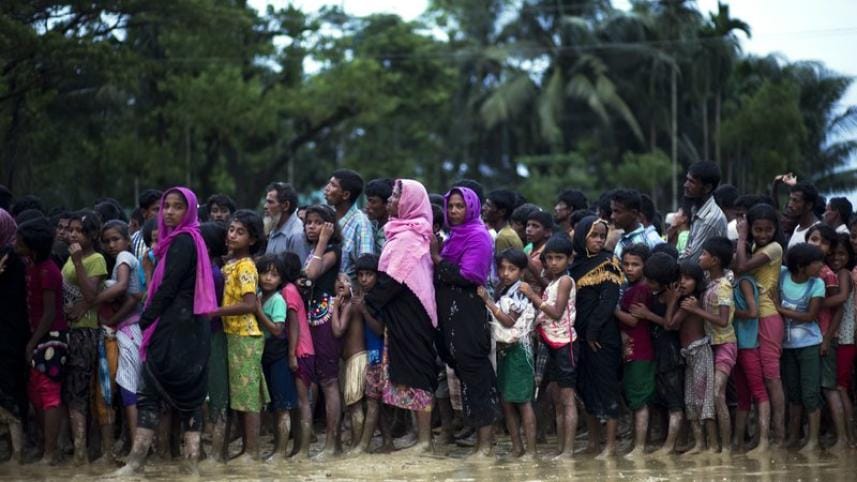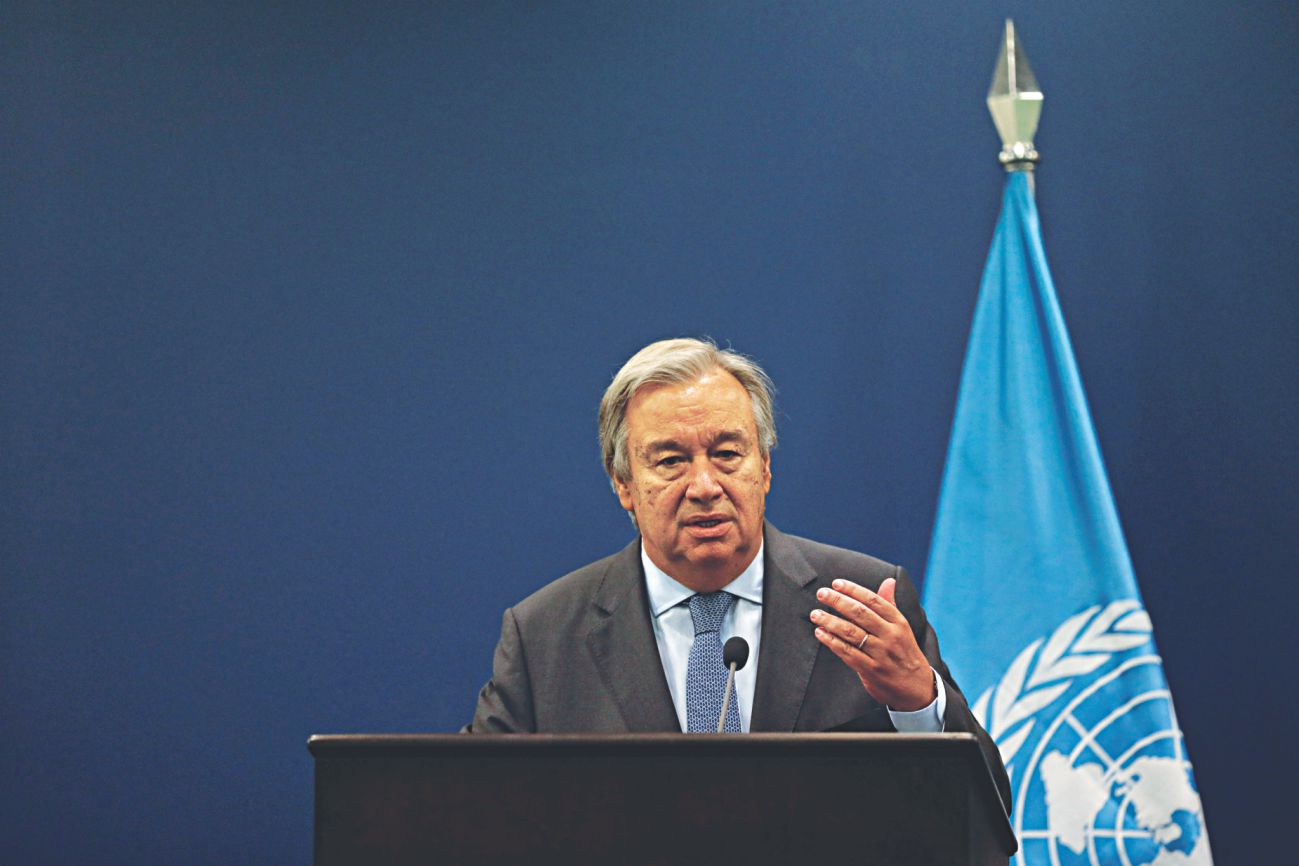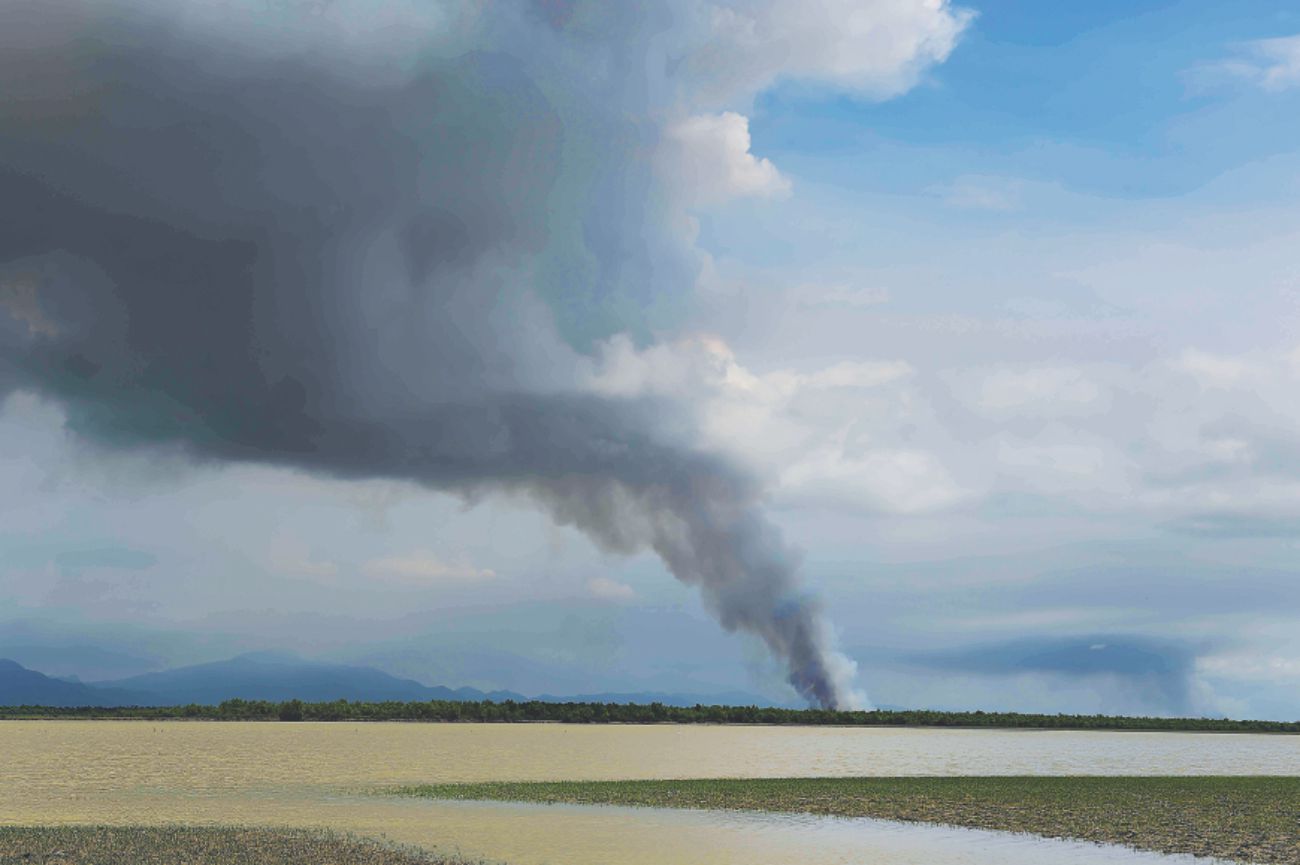US to give USD32m aid for Rohingya refugees

The United States will provide nearly USD32 million in humanitarian aid to help Rohingya refugees, the State Department said today.
This so far is Trump administration's first major response to the mass exodus from Myanmar.
The United States is providing an additional nearly $32 million in humanitarian assistance to address the urgent needs of Rohingya fleeing violence from Myanmar to Bangladesh, as well as internally displaced persons in Rakhine State, and host communities in Bangladesh, said a press release of the US Department of State.
"The United States is pleased to have announced this support during the 72nd Session of the UN General Assembly in New York. Among other priorities, one of the primary themes of this year's General Assembly is bolstering support for humanitarian assistance to ongoing emergencies, in particular for refugees and the communities that host them," it said.
The US has also praised Bangladesh's generosity in responding to the humanitarian crisis in the wake of the mass exodus of Rohingya refugees.
"We applaud the Government of Bangladesh's generosity in responding to this severe humanitarian crisis and appreciate their continued efforts to ensure assistance reaches people in need," reads the release.
The United States also called upon all parties to allow for unfettered humanitarian access to people in Rakhine State and also encouraged other donors to join them in providing additional humanitarian assistance for those affected by the crisis.
The new financial aid for food, medical care, water, sanitation and shelter for the refugees comes as the US joins a growing chorus of international condemnation over the minority group's plight.
AP adds: In less than a month, some 421,000 Rohingya have fled to Bangladesh, one of the world's poorest countries, as the United Nations and others raise allegations of ethnic cleansing.
The crisis has threatened to jeopardize Myanmar's US-aided shift toward democracy after five decades of harsh military rule. Former President Barack Obama helped shepherd that transition in what is considered one of his key foreign policy achievements. President Donald Trump has been less attentive to the country, also known as Burma.
The exodus has also emerged as major blemish on the record of Myanmar's civilian leader, Aung San Suu Kyi, who maintained close ties to the Obama administration. Simon Henshaw, the top US diplomat for refugee and migration issues, said the US applauds Suu Kyi's recent call for the Rohingya to return but is urging her to ensure the situation is safe for them to come home.
"We need the government to take a lot further effort to secure the area, to protect the people," Henshaw said in an interview on the sidelines of the annual United Nations General Assembly meetings. "We're concerned about the reports of attacks, extrajudicial murders, rapes, burning of villages."
The State Department will provide the money from an existing account for refugee and migration issues, US officials said, and will coordinate the aid through the International Committee of the Red Cross and affiliated local groups.
Last month, Rohingya insurgents attacked Myanmar security forces, leading to a military crackdown in which Rohingya villages have been burned and hundreds killed. This week Suu Kyi used her first speech on the crisis to defend her country's actions.
Though Suu Kyi said the "great majority" of Muslims in the conflict zone stayed put and less than half of villages were emptied, the US has been skeptical about that assertion.
"We don't have the access to evaluate that," Henshaw said. "But 420,000 people moving into Bangladesh suggests the vast majority of Rohingya are affected."
The US announcement came as world leaders converged in New York for the UN gathering. Suu Kyi did not attend, but on Tuesday, she spoke with Secretary of State Rex Tillerson in what was believed to be their first conversation since Tillerson took office.
Tillerson welcomed Myanmar's commitment, as expressed in Suu Kyi's speech, to end the violence and allow those displaced to return home, the State Department said. The Rohingya live mainly in Myanmar's northern Rakhine state, near the Bangladesh border, and have had a long and difficult history in the predominantly Buddhist nation.
The US said the new money makes up roughly one-fourth of what global aid groups say they need to address the humanitarian crisis, with the expectation that the rest of the world will make up the remaining three-quarters. Over time, the overall cost will probably run into many hundreds of millions, said Eric Schwartz, the president of Refugees International.
"I've been doing this work for 30 years," Schwartz said by phone as he flew back from Bangladesh. "This is as bad as anything I've ever seen in terms of the human mystery that the Burmese military has created."
Schwartz said that in addition to food, water and shelter, the refugees will need clothing, security for camps being erected on the Myanmar-Bangladesh border, education for hundreds of thousands of child refugees, and psychosocial support for those who have experienced trauma during the exodus.
Bangladesh already struggles with overpopulation and is poorly equipped to take in hundreds of thousands of refugees. Even so, the international community has roundly praised the country for its generosity and willingness to help the Rohingya.
The USD32 million brings the total the US has given in humanitarian aid for Myanmar refugees and related issues this budget year to roughly $95 million. Although the crisis has worsened sharply in recent weeks, hundreds of thousands more Rohingya were already in Bangladesh from waves of violence years earlier, while others were displaced within Myanmar.



 For all latest news, follow The Daily Star's Google News channel.
For all latest news, follow The Daily Star's Google News channel. 

Comments